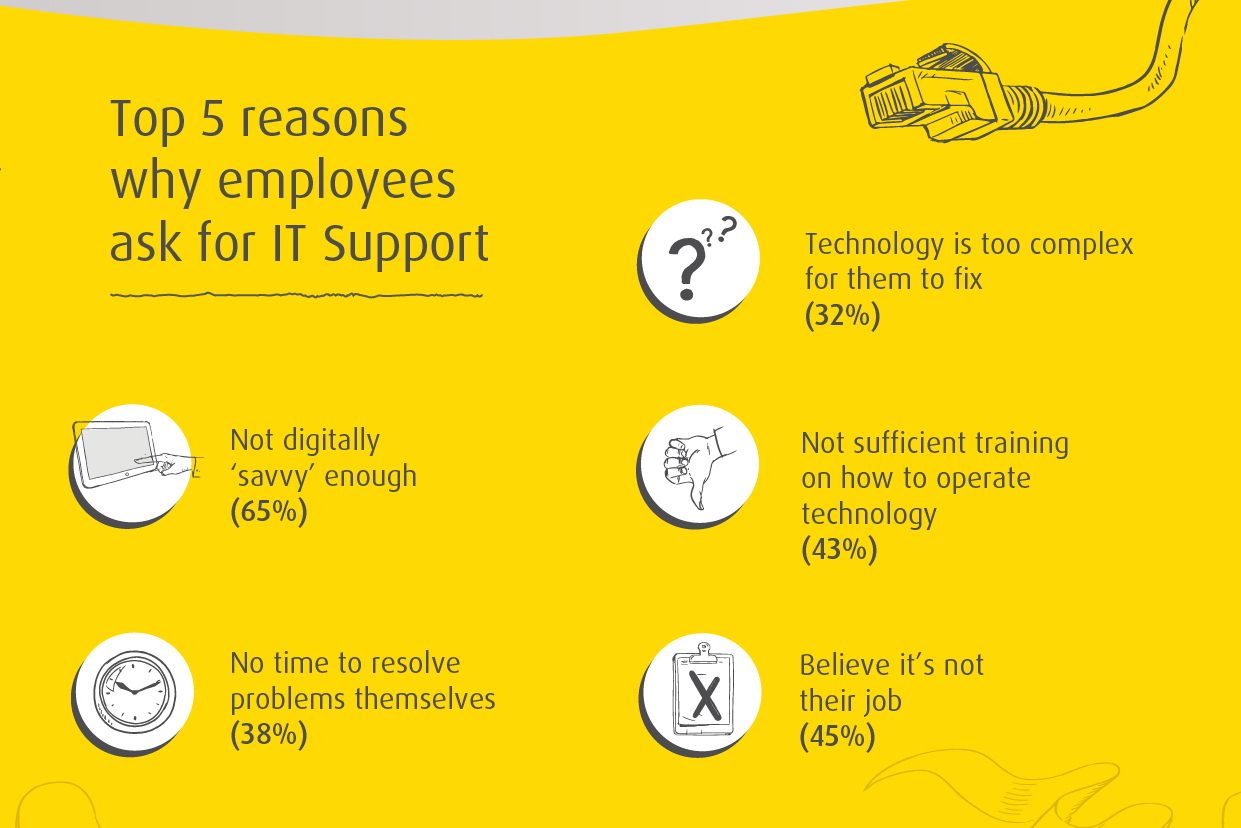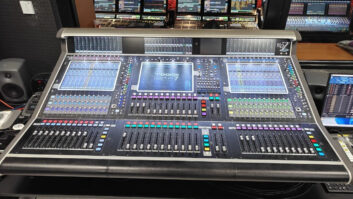
The UK’s workforce is less digitally savvy than other countries’, according to new research from Barco; we talk to a ClickShare expert to find out more.
A new survey of 1,250 IT decision makers in the UK, US, Germany and France looks into the digital skills divide between the generations in the workplace. The research, commissioned by Barco, revealed that millennials are overly dependent on IT support. It also found that the UK workforce was less ‘digitally savvy’ than other countries, and uncovered a north-south divide, with London-based employees more technically able than those in the north or the Midlands.
Other key findings revealed that problems with presentation technology in meetings are the most common and most time-consuming issues faced by IT departments.

Why did Barco commission the research? Lieven Bertier, head of product management at Barco ClickShare, replied: “Because we see that wireless presentation solutions and a lot of meeting room solutions are either asked for by IT departments or facilities departments. Those people are very important stakeholders in bringing in certain solutions into the meeting room. For us it is really important for us to understand what is happening in that domain, the challenges that IT professionals are seeing, do we find any regional differences, which is really important to them. Secondly, if you look at the new ways of working, some people call it the digital workplace, you see a lot of generations on the work floor and they each have their own expectations. And that is something we wanted to dig into a bit more, finding out what the expectations are of those different generations.”
One would be forgiven for thinking that millennials must be more digitally disposed than previous generations, however this was not what the findings suggested. As for why this is the case, Bertier commented: “I think that it’s related to the way they deal with technology, so they are used to having it just work and be available. I think the problem-solving side of older generations is a bit higher.”
How is an issue like this solved – is it down to education? “If you look at the responses the IT professionals are giving, they are indeed saying it in down to the degree of training and education and working with certain tools in a company environment,” stated Bertier. “My personal take is that millennials are used to just having things work and they have the experience from consumer equipment and they bring that into the company. As such, they have different expectations than especially ‘baby boomers’ for instance. They are used to walking in using their phone, they are connected, they are used to apps, any screen has to be a touchscreen. And that is the expectation they have when they enter the corporation. That is, in my view, giving corporations a number of challenges these days.”
The research, conducted by research agency Vanson Bourne, singled out the UK for having an acute problem with a digital skills gap. “One of the key things that we found was that IT decision makers in the UK believe that their employees are not digitally savvy enough to solve tech issues and that was one that really stood out for the UK versus other countries.”
An alternative explanation as to why millennials appear to require more IT support was revealed. This is to do with younger employees flagging up issues in a meeting that an executive level employee is having. In other words, a junior member of staff raises a ‘ticket’ to the IT department, even though they weren’t the person experiencing the issue, which slightly skews the results.
Another finding from the study was a north-south divide in the UK. On this topic, Bertier proffered: “What we see in all the countries is that there is a bit of divide between the ‘metropoles’ and other areas of the country. The bigger the city, the more likely it’s going to be a digitally savvy environment and that also has to do with the types of corporation you find there. Take Brussels, London or Paris – there are huge business districts, there is a lot of financial industries, there’s also a lot of start-ups active there. All in all, just looking at a ‘metropole’ it’s usually more thriving than other areas of a country, and that is also what you see reflected in the survey.”

When talking about meeting room solutions, the subject of the huddle room is never too far away. Huddle rooms tend to be populated with less technology and there’s more of an emphasis on usability and speed. On whether this will have an affect on the skills deficit, Bertier explained: “Yes and no. In a way huddle rooms have less technology than other rooms. They are characterised by the fact there are not a lot of people sitting there, very often there’s not a lot of pre-installed equipment either, you often cannot book them so you just walk in and start using them whenever you feel the need. It’s precisely in this part that is raising the bar again in terms of technology challenges because there is no time to set up a call, no time to set up a meeting. You walk in it has to be instant, so whatever device I have at that moment has to do the job. That is why at first you might think huddle rooms are easier to tackle in terms of technology, I think it’s even a bigger challenge given the expectations that users have.”
Is Barco’s ClickShare device the answer? “If you look at the top three arguments for why people would go for wireless presentation or replace existing technology: it is wireless, it has to be quick and easy to set up, and it has to be quick and easy to use,” said Bertier. “And that is where ClickShare comes in and offers a solution to this. The ROI comes from that you should have less IT incidents but you also save substantially on training costs. I think if you combine the two it’s a very strong business case.”







